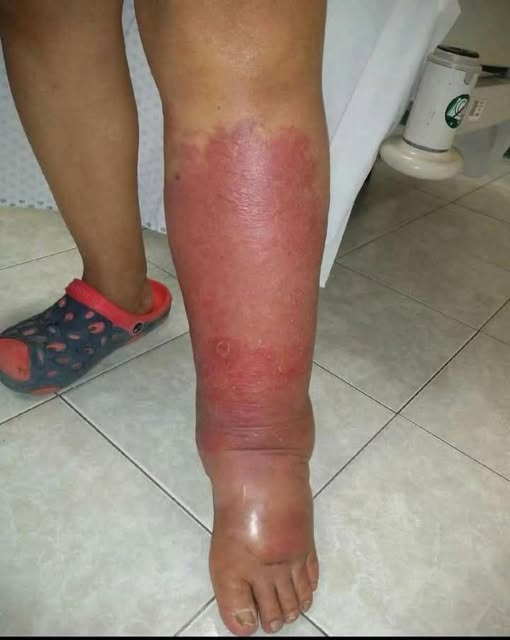You might brush it off as nothing serious when your feet start to swell, especially after a long day on your feet or during hot weather, but what if that puffiness is actually your body trying to tell you something important? Swollen feet may look like a minor inconvenience or just a temporary reaction, but in reality, they can be a subtle but clear signal that something more serious is going on beneath the surface. That’s why it’s so important not to ignore this seemingly simple symptom, especially if it happens frequently or doesn’t go away after rest.

One of the most common underlying causes of foot swelling is poor circulation. When blood doesn’t flow efficiently through the lower parts of the body, like the legs and feet, it can lead to fluid buildup, resulting in noticeable swelling. This is often a red flag in individuals with heart disease, diabetes, or other conditions that impact blood flow. Poor circulation doesn’t just mean tired feet—it can signal that your cardiovascular system is struggling to do its job, and that’s not something you want to overlook. Another major reason for swollen feet is fluid retention, medically known as edema. This condition happens when your body holds onto excess fluids that become trapped in your tissues, making the feet and ankles look puffy or feel tight.
Edema can be triggered by issues with the kidneys, liver, or lymphatic system—organs and systems that play critical roles in filtering, draining, and circulating fluid throughout your body. When they’re not working properly, swelling can be one of the first outward signs. Of course, sometimes swollen feet are simply the result of standing or sitting too long in one position, especially during hot weather. That type of swelling typically goes down after elevating your feet or getting some movement. But when the swelling doesn’t improve with rest, or when it becomes a recurring issue, it’s time to pay closer attention.
Inflammation is another factor that can cause swelling in the feet. While swelling is a normal part of your body’s healing response after an injury—like a sprain or strain—it can also be associated with chronic inflammatory conditions such as arthritis, gout, or infections in the joints or soft tissue. If you notice additional symptoms like redness, pain, stiffness, or warmth in the swollen area, it could be a sign that inflammation is doing more harm than good, and medical treatment might be necessary. What makes this issue tricky is that swollen feet alone don’t always tell the whole story.
That’s why it’s crucial to look for patterns or additional symptoms. Are your feet swollen every evening or only after a specific activity? Does the swelling come with shortness of breath, fatigue, or sudden weight gain? Are both feet affected equally, or is it only one? These kinds of details can help healthcare professionals narrow down the root cause and determine whether it’s something that can be managed with lifestyle changes or if it requires immediate attention. Paying attention to your body’s cues can make all the difference when it comes to your health. Swollen feet might not seem like a big deal on their own, but when viewed as part of a bigger picture, they can be a valuable warning sign that something isn’t quite right.
That’s why, if you find yourself dealing with persistent or painful foot swelling—especially when it’s combined with other symptoms—it’s best to talk to a doctor sooner rather than later. The good news is that many of the conditions linked to swollen feet are manageable, especially when caught early. Whether it’s improving your circulation, addressing organ function, reducing inflammation, or just tweaking your daily habits, there are steps you can take to reduce swelling and protect your overall health. So don’t ignore what your body is trying to tell you. Sometimes the smallest symptoms are the most important signs that it’s time to take action.





